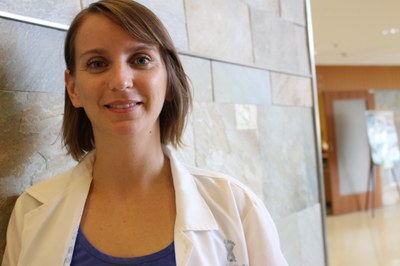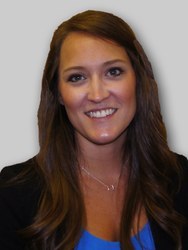Leslie Clark, MD, and Ashley Freeman, MD, were honored with the 2017 Pope Clinical Fellows Awards for demonstrating excellence in cancer research and in clinical oncology practice.


University of North Carolina Lineberger Comprehensive Cancer Center named Leslie Clark, MD, and Ashley Freeman, MD, as the recipients of the 2017 Pope Clinical Fellows Awards.
Freeman, MD, was recognized for her work as chief fellow in the Division of Hematology and Oncology, and Clark, MD, was recognized for her work as a fellow in the Division of Gynecologic Oncology. They were selected for the awards for demonstrating excellence in cancer research and in clinical oncology practice. The $5,000 awards, supported by the John William Pope Foundation, are given annually to up to three emerging physician-researchers.
“Part of the UNC Lineberger mission is training the next generation of physicians and researchers who will uncover the treatment advances of tomorrow,” said Norman E. Sharpless, MD, UNC Lineberger’s director and the Wellcome Distinguished Professor in Cancer Research. “We are honored to recognize these two outstanding physician-researchers for their achievements at the bench and bedside.”
During her gynecologic oncology fellowship, Clark led studies exploring the link between obesity and gynecologic cancer. Her work included a survey of patient knowledge of the link between obesity and endometrial cancer, as well as an investigation of diet-induced obesity in preclinical models to explore the impact of obesity on the mouse weight, and tumor size. In addition, she helped to lead a clinical trial to testing statins, which are cholesterol-lowering drugs, to decrease tumor growth.
“Dr. Clark is certainly destined to be a star in our field, and I look forward to watching her career grow as she joins us as faculty at UNC,” said UNC Lineberger’s Victoria Bae-Jump, MD, PhD, an associate professor in the UNC School of Medicine.
Clark’s last day as a fellow was Friday, June 30, but she will be joining the UNC Gynecologic Oncology staff as a faculty member.
Freeman’s research focused on disparities in outcomes for patients with cancer of the blood and the development of early-phase clinical trials for Chimeric Antigen Receptor T-cell (CAR-T) immunotherapies, a type of treatment in which a patient’s immune cells are engineered to fight their own cancer.
Through her work on disparities, Freeman, together with her collaborators, identified a variation in survival rates by region in North Carolina for adults with acute myeloid leukemia (AML). Specifically, AML patients from three regions had an increased risk of death, even after controlling for other sociodemographic variables. Currently, Freeman is studying whether these trends exist for other types of blood cancer and analyzing the role that physician networks may play in this pattern.
Freeman also wrote and gained regulatory approval for a phase I clinical trial of a type of CAR-T immunotherapy for relapsed or refractory multiple myeloma that’s targeted to begin this year.
“Dr. Freeman has performed as an outstanding hematology/oncology fellow,” said UNC Lineberger’s William Wood, MD, an associate professor in the UNC School of Medicine. “As an attending, I was grateful to have Dr. Freeman working with me, as this ensured excellent clinical care for the patients on my service and made my work that much easier,” he added.
Freeman’s last day as chief fellow was Thursday, June 29. She is moving to Canada to take an academic position in the British Columbia Cancer Agency.
